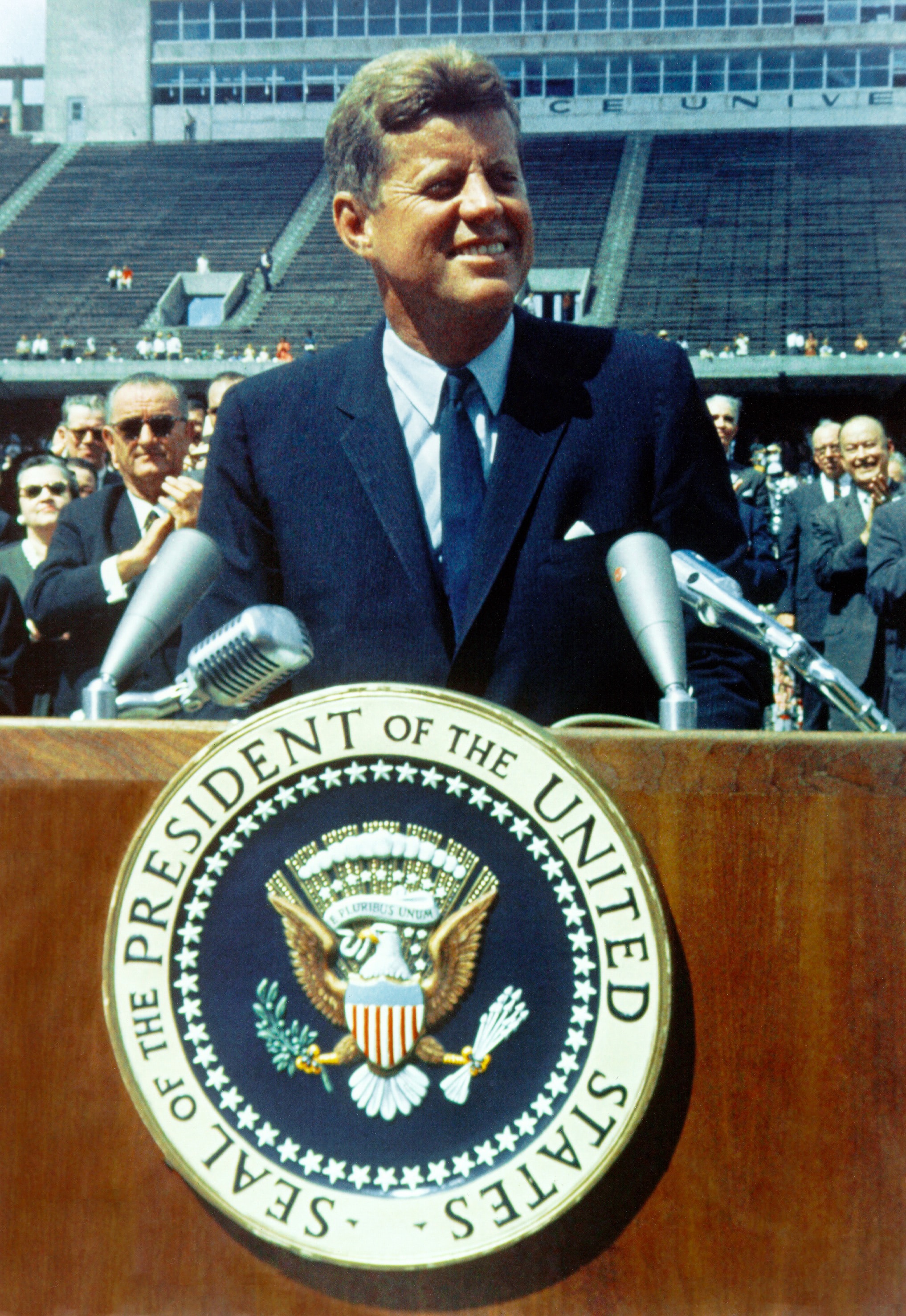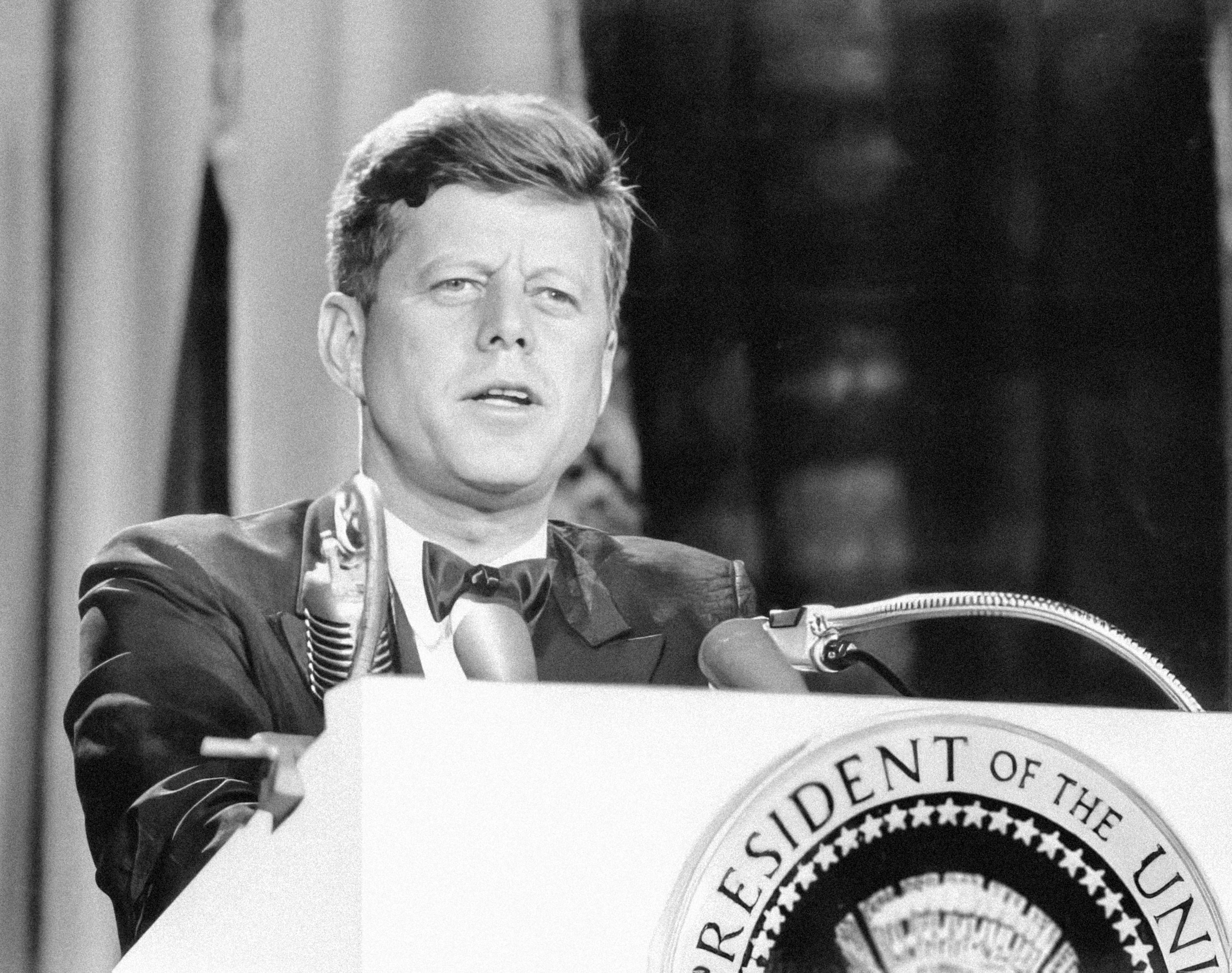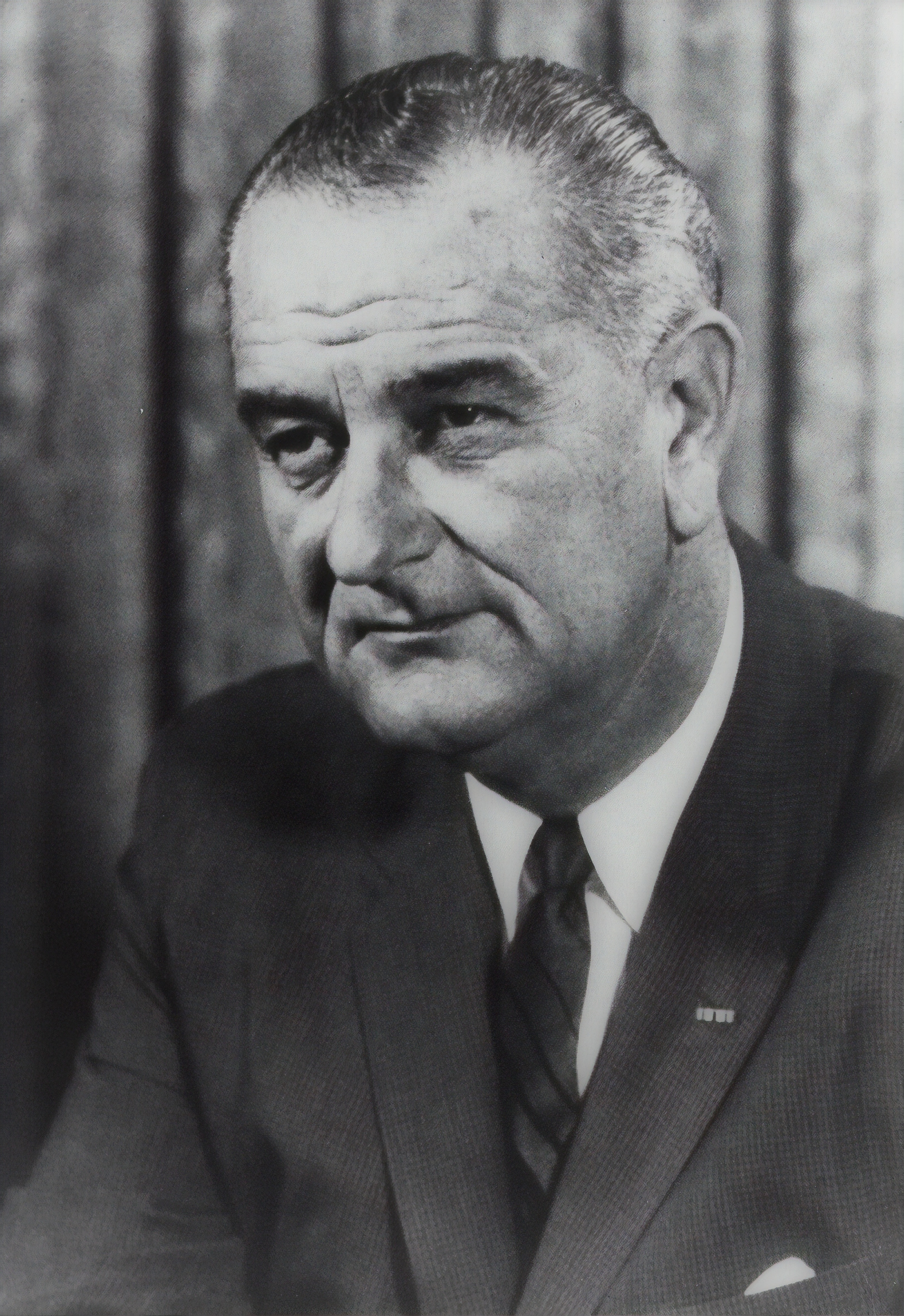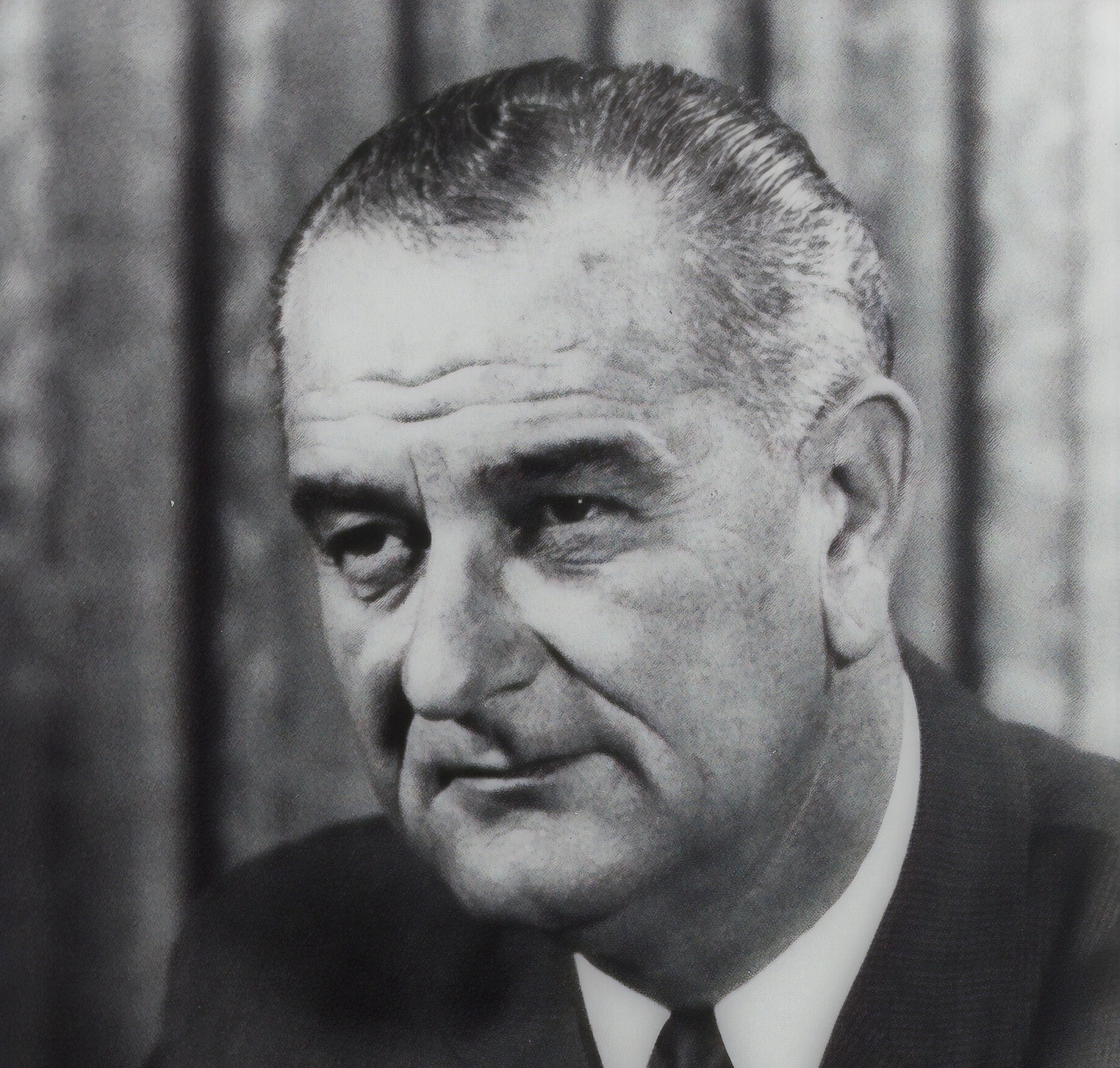The world was at risk of no longer existing, dangling at the mercy of weaponry created by the very individuals who fear it, with the responsibility for resolution slipping from leader to leader. The Cold War was a period that dictated the choices of all people, with impending nuclear warfare striking panic in the hearts of society.
These anxieties influenced the most powerful, with President John F. Kennedy (JFK) narrowly resolving the Cuban Missile Crisis, forcing America to confront the fearsome prospect of nuclear war. Following JFK’s assassination, throughout his presidency, Lyndon B. Johnson (LBJ) escalated the conflict in Vietnam, his goal being to eradicate communism.
LBJ was forced to take over a war he did not begin, facing ever-escalating human losses and losing. He faced an impossible act to follow, being made to shape up into the martyr that JFK had become. All of this hasty action and confusing resolution calls out that during the Cold War, legislation aimed to either prevent nuclear war or gain social approval. Despite these goals, the resolutions were unpredictable.
Nevertheless, these unpredictabilities question the thought processes and the lessons learned from president to president. The uncertainties regarding the changed political climate point to one fundamental question: Why did approaches to foreign policy differ immensely between John F. Kennedy and Lyndon B. Johnson despite such proximity in time of leadership?
The unique political climate following John F. Kennedy’s assassination resulted in Lyndon B. Johnson’s negative reputation concerning foreign policy, exacerbated by Kennedy’s misconstrued victories and the nation’s unrealistic standards.
A stark contrast to JFK
LBJ’s notable weaknesses hindered his leadership ability, with numerous associates of LBJ suggesting he was ignorant and close-minded. Johnson disliked foreigners, was much less read and traveled than JFK, and comprehended a shallow amount regarding foreign affairs. Mitchell Lerner, in particular, addressed this in his historical quarterly paper, Four Years and a World of Difference: The Evolution of Lyndon Johnson and American Foreign Policy, stating: “Many of his contemporaries, and many subsequent historians, have embraced this notion of LBJ: the Texas gunslinger, a man whose lack of education, sophistication, and training, placed serious constraints on his abilities as president.”
On top of this, LBJ needed help to maintain promises made by JFK, disappointing numerous nations as expected legislation remained only a point of discussion. “Kennedy had responded to changing dynamics [of the Cold War] by announcing the concept of a ‘Grand Design’ for Europe…. a ‘true partnership’ between the US and Europe based on ‘two pillars of democracy of equal weight with leaders of equal voice. However, by the time Johnson took over, little progress had been made in making this a ‘partnership’ in anything more than rhetoric.”
The true LBJ?
Stereotypes are given to Johnson likely based on his Texan origin. However, they are spurred by irrational disdain. LBJ entered office during a period of high political animosity, taking the blame for inevitable failures. In No Good Choices: LBJ and the Vietnam/Great Society Connection, Francis M. Bator introduces a unique perspective, having worked alongside LBJ as his deputy national security adviser. Bator suggests that LBJ did not have the most outstanding education. However, his thoughts were unique, and he was misunderstood due to the inevitability of America’s loss in Vietnam. It would be unproductive to credit LBJ’s mistakes solely to human error, as that would pardon some of the most atrocious historical crimes. However, most of LBJ’s intentions were arguably never malevolent, and his course of action was frequently productive and effective, separating him from this grouping.
The president is responsible for protecting and serving, and LBJ did just that. LBJ was seen by the public as a pushover, but in reality, he was an effective and independent leader. LBJ acted as someone who paralleled the depiction of a decisive commander, having the confidence to override the opinions of his cabinet and other leaders when he disagreed. Furthermore, he was a formidable bargainer and peacemaker, always considering the will of both parties. Another misconception was that LBJ resented the wiser “Harvards”; in reality, he viewed those as more intelligent than him. Johnson understood that he had shortcomings due to his lack of education, but he never allowed them to obscure his sense of self-respect. Instead, LBJ often read and educated himself. Many wrote of him as someone who is highly intelligent and is committed to foreign affairs; a stark contrast from rumors and stereotypes that seeped into political conversations.
 Photo by History in HD on Unsplash
Photo by History in HD on Unsplash
The true JFK?
Comprehension of nuances within the political office shifted from emotion-based to rational, marked by the change in conversation regarding JFK and LBJ as time progressed. As a result, the previous glory associated with JFK and critiques of LBJ have reshaped with time, leaving a more accurate picture in its wake. In their Harvard Review article, Allison Graham and Paul Zigman provided an early example of when doubt and questioning began to lead to research. Their research in 1982 gave way to the true implications of JFK’s political office, finding out that JFK immensely overplayed his role in the Cuban Missile Crisis, riding on a string of luck provided by Krushchev. JFK’s immense support stemmed from the people’s emotions, with Americans looking to him as a savior, a misconception postulated by his rhetoric instead of fact.
In his 2004 article, Robert Johnson reveals the division between Kennedy and his office on the topic of making Vietnam a ‘secret war’ to avoid criticism. All of the investigations into Kennedy’s office reveal misconstrued victories and attempts at saving face instead of saving the nation, manipulating peoples’ tendency to fall into factless support based on rampant emotions.
Historiography
Many methods are reshaping the study of JFK and LBJ; one distinguished is the analysis of each president’s minor behaviors, instead of focusing on large-scale conflicts. These personal approaches to history provide humanizing nuances that were foreign during the height of both presidencies. Kent Germany presents this approach in his article, Lyndon B. Johnson: Foreign Affairs, stating: “Time has launched these critiques in new directions, as historians have recently begun to expand their focus beyond the Vietnam War, and in doing so have produced a more comprehensive picture of Lyndon Johnson’s diplomacy.” Germany emphasizes LBJ’s humanity, justifying his personal decisions throughout his presidency.
These more personal methods of comprehending the character of presidents have given way to more quantitative reviews, solidifying hypotheses about both LBJ and JFK. In his quantitative analysis, Gregory Marfleet uses a mathematical approach to analyze four patterns in JFK’s behavior and speech. This new way of analysis brought nuance to political psychology, adding behavioral data into controversial debates about rhetoric and politics in the 2000s. Marfleet focuses on JFK’s behavior and speech in private and public spheres, not action.
The truth behind the Cuban Missile Crisis
JFK’s failures were hidden from the public for a significant amount of time, resulting in him being falsely idolized, and when he succeeded, he made sure to boast. A blatant example is the Cuban Missile Crisis, where a string of luck made all the difference in JFK’s popularity. JFK exaggerated his role in the Cuban missile crisis, an overlooked reality. In their paper, Managing US-Soviet Confrontations: JFK, Cuba, and the Macho Myth, Allison Graham and Paul Zigman’s paper display the overlooked realities of the inner workings of JFK’s office, which needed to be more organized and accurate. Graham and Zigman point out how: “Revisionists criticized Kennedy’s recklessness and irresponsibility in insisting that Khruschev capitulate and cry uncle during a confrontation that JFK judged to have a one-in-three chance of nuclear war.” JFK had capitalized on this “macho myth” he crafted for himself; it was a facade to uphold his popularity.
In order to solve the Cuban Missile Crisis, JFK knew that he had to appeal to Khrushchev, who luckily made it very clear what he wanted. Khrushchev wanted the missiles in Turkey removed in exchange for a promise not to invade Cuba. In a way, this opportunity fell into Kennedy’s lap, yet he made sure to gloat about it regardless, asking if he could publish the plan publically. JFK had then chosen to keep the Turkish missile removal a secret, wanting nobody to know that he had given in to the Russians. This way, it seemed as if he convinced the Soviets to pick up and leave Cuba. When these claims resurfaced, JFK tried to blame Ambassador Adlai Stevenson. JFK was quick to throw others under the bus to keep up his image, resorting to overplaying his successes to gain the favor of the people. He was fortunate to remain private about his failures, never forgetting to publicize his accomplishments, yet he held back his pride regarding one thing – Vietnam.
The Vietnam War
JFK never yearned to pursue the Vietnam War, feeling as though “Americanizing” the conflict would be irrational. At the same time, Kennedy felt it was a vital conflict to address, primarily agreeing with the need to contain communism: “I do not agree with those who say we should withdraw.”
These distinct contradictions in JFK’s rhetoric led to confusion following his death. Kennedy wanted to assure America that he would not tolerate a defeat in Vietnam while ensuring the conflict would not be drawn out.
JFK also contradicted himself with his intentions of non-withdrawal and the release of The National Security Action Memorandum 263 (NSAM-263). NSAM-263 outlined that the withdrawal of 1000 US military personnel from South Vietnam would happen by the end of 1963. While this is in contrast to Kennedy’s previous statements, it could support the idea that Kennedy wanted to remove American people from the conflict and support struggling Vietnamese citizens from a distance.
These discrepancies call into question how sure Kennedy was about a conflict he had just involved America in, a question answered by Edward Jay Epstein in his book The Assassination Chronicles: Inquest, Counterplot, and Legend. The book reveals the shaky, confusing contradictions that stemmed from JFK’s advisors, with the larger purpose of investigating not only malice in JFK’s assassination but also in his office. The book revealed that JFK asked how perspectives could be so conflicting and wondered why no clear answer could be provided to his questions about Vietnam. Individuals with different opinions were pulling JFK to resolve the conflict in Vietnam, an example being In 1961 when Walt Rostow and General Maxwell Taylor tried to influence JFK into dispatching nearly 10,000 troops to South Vietnam. However, Kennedy refused to do so.
Ultimately, it is clear that Kennedy did not want to fuel the flames of Vietnam, but specific scales of unpredictability forced him to confront the conflict.
 Photo by Florida Memory on Unsplash
Photo by Florida Memory on Unsplash
JFK’s efforts for peace
Kennedy remained an immensely peaceful president, whether in America or on the global stage. JFK was well-loved for his instinct to seek peace, foreign or domestic, even if such peace was nonexistent.
JFK had a unique and effective doctrine of peace. He felt unity was the first step to peacefully ending the Cold War. Kennedy famously declared the Ich Bin Ein Berliner speech, an anti-communist pledge stating that, like the West Germans, JFK was also a man of Berlin. This speech displayed JFK’s solidarity with suffering nations, showing his willingness to help. A month later, he signed the Limited Test Ban Treaty, calling for massive reductions in nuclear tests; it was the first nuclear arms control agreement of the nuclear age. JFK implemented impactful domestic reforms, as he was responsible for upholding and introducing the Equal Pay Act, which outlined that women are to receive equal pay compared to men. JFK’s The Strategy of Peace speech was adored by many across the globe, so much so that it was played live over the radio in Russia.
 Photo by Library of Congress on Unsplash
Photo by Library of Congress on Unsplash
An opportunity LBJ never had
JFK had the opportunity to work on domestic legislation and social relationships with the nation - something that LBJ yearned for. JFK had the proper support of his people and could translate that love into effective foreign and domestic policy. However, JFK worked on these things when the War in Vietnam lay relatively dormant, In later years, it was raging, thus making parallel policy impossible for LBJ to pass.
Conversely to JFK, LBJ, more often than not, had concealed successes and publicized failures, contributing to his shallow popularity. LBJ undeniably had a tough act to follow, needing to supersede a glorified martyr to gain the nation’s approval. In his article, Mitchell Lerner holds immense sympathy for LBJ, saying that LBJ was often under-credited for his accomplishments. Johnson stated explicitly: “I do not believe that I will ever get credit for anything in foreign affairs, no matter how successful it is.” LBJ felt defeated before even stepping into the White House, knowing that no matter what he did, he would never match JFK. He had to prove he was a worthy successor to JFK, who was being portrayed and glorified beyond reasonable credit. Johnson became consumed by the Kennedy legacy. These expectations translated into an obsession with preventing a communist victory in Vietnam. LBJ declared: “I will not lose in Vietnam” only two days after the death of JFK.
LBJ’s true passions lie in domestic affairs, with him pursuing many social reforms to equalize America. For example, LBJ passed a bill providing rent for disadvantaged families. However, due to Vietnam, he was given little time or opportunity to address them. These domestic goals were LBJ’s priority before even his presidency. Having to handle the fallout of a conflict he did not start or support led to tension, demanding immediate resolution. LBJ felt that if he could resolve the War in Vietnam rapidly, he could focus on changes he cared deeply about, which were beneficial instead of harmful to his people. Johnson desired the chance to prove himself with his work on domestic issues, leaving him to hastily seek alternative solutions to resolve issues across the sea.
Influenced by the past
Past examples and influences harmed Johnson, who relied heavily on the past to formulate the future. Proof stood before LBJ that rash actions resulted in the best outcomes. The nuclear massacre of Hiroshima and Nagasaki quickly concluded WWII, and Kennedy’s refusal to step down from the Cuban Missile Crisis ended in peace. Both examples served as guides that quick and frequently violent action brought about a quick resolution to challenging issues, a misconception that would haunt LBJ following the Tet Offensive. LBJ had two bad choices: proliferate the conflict and Americanize the war, or bring the remaining troops home and allow Vietnam to resolve its conflict. LBJ stated that he was willing to send in only 100,000 troops, no more. In the end, he sent 50,000 more soldiers, increasing the total presence to 125,000 soldiers. His feelings were strongly influenced, likely by the hope that a victory in Vietnam would translate into the people approving of him as they did of JFK. LBJ was under immense pressure from a team of people who insisted that violence was the answer. LBJ’s driving motivation was to resolve Vietnam, leading him to make irrational decisions.
Lyndon B. Johnson was a man formed in his time. He was made to work constantly, attempting to fit in with those he felt inferior to while balancing an impossible task that no human being could undertake. Vietnam would have ended poorly being placed in the hands of JFK or another politician, having remained a conflict that could not be resolved in America’s favor.
Discontinuities have arisen between past and modern approaches to foreign policy. A significant example is America’s modern approach to resolving conflicts. The theme here is that leaders often rush into action, resulting in consequences from a lack of planning. There have been multiple examples of this in modern history, first in 2001, when America successfully wiped out the Taliban but did nothing to stabilize Afghanistan. Another example of hasty American policy is when the Bush Administration rushed to overthrow Saddam Hussain but held no follow through for rebuilding and supporting Iraq as a nation. These discontinuities must be analyzed on a moral and rational ground before being dictated to and judged. They should be regarded with emphasis on future research into historiography and its intertwinings with leadership, choices, and morality.



